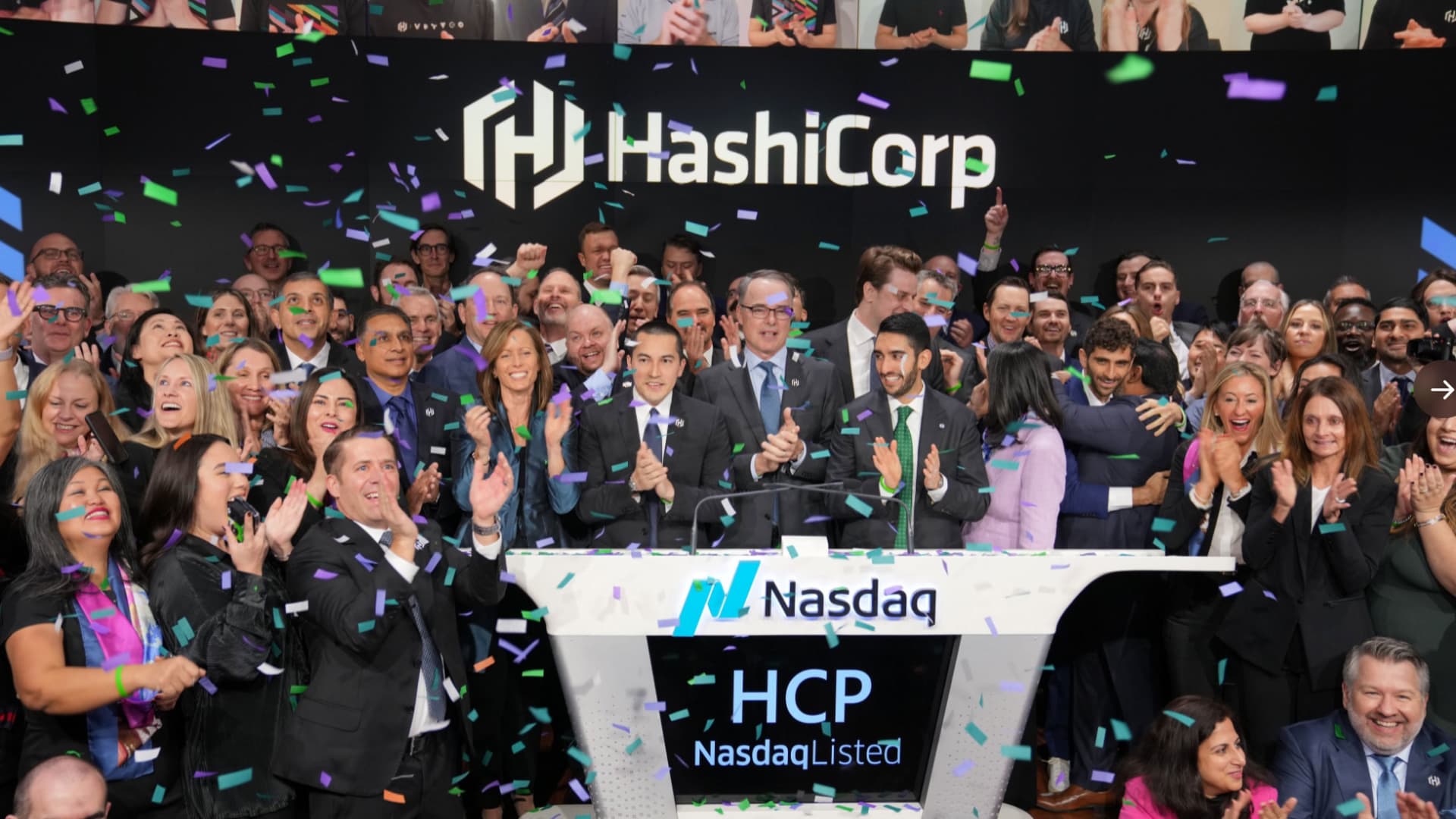Oracle can now claim to be hosting ‘two most important sites of our generation’ — TikTok and Zoom

The logos of the Chinese video portal TikTok and the US software and hardware manufacturer Oracle Corporation can be seen on a smartphone and screen on September 14, 2020 in Berlin, Germany.
Thomas Trutschel | Photothek | Getty Images
SINGAPORE — Facebook and Google will likely be the losers in a deal to keep video-sharing app TikTok operational in the United States, an academic told CNBC on Monday.
President Donald Trump said Saturday that he has in principle approval a deal where enterprise software maker Oracle and retail giant Walmart will partner TikTok in the U.S. Shortly after the president’s comments, Oracle said it was chosen as TikTok’s secure cloud provider and will become a minority investor with a 12.5% stake in the company.
The deal “is somewhere between a new vendor agreement in cloud and a joint venture, all with the goal of satisfying the U.S. and creating value for the owners,” Jason Davis, associate professor of entrepreneurship and family enterprise at INSEAD, said on “Capital Connection.”
He said the deal was “interesting” for Oracle, and that he thinks TikTok Global would likely strip out Google’s cloud infrastructure on its platform in favor of Oracle.
For its part, Oracle has has struggled to compete against the likes of Amazon, Microsoft and Google in cloud services. A report from research firm Gartner indicated in 2019, the latter three companies all picked up more cloud revenue than Oracle. Microsoft appeared to be the front runner in the race to buy TikTok’s U.S. operations until Sept. 13, when it announced that TikTok’s Beijing-based parent company ByteDance had rejected its bid.
TikTok said in a statement Saturday that Oracle will be responsible for “hosting all US user data and securing associated computer systems to ensure US national security requirements are fully satisfied.”
“Now, Oracle can actually claim to be hosting what might be the two most important sites of our generation — both TikTok and Zoom. And, they take away a good chunk of equity in TikTok in the process,” Davis said. “For them, it’s a quite an interesting deal.”
Earlier this year, Zoom selected Oracle to expand its cloud infrastructure, and passed up on industry leaders Amazon Web Services, Alphabet’s Google Cloud Platform and Microsoft’s Azure Cloud. The video conferencing platform saw its popularity soar due to the coronavirus pandemic that forced many people to work and learn remotely.
Losers of the deal
The U.S. Department of Commerce said it would delay until next Sunday the decision to prohibit U.S. transactions using TikTok, as the companies work out the final deal.
Davis said Facebook, Instagram, Google and YouTube are set to be losers of this deal.
“I think they were really hoping that this would create a situation that would give them the runway they needed to go build a viable competitor to TikTok,” he said. Davis pointed to a similar situation with telecom equipment giant Huawei. The Chinese telco was caught in the crosshairs of the U.S.-China trade and tech tensions, and that allowed its rivals such as Samsung, Ericsson and Nokia to build up and push their 5G products.
“I’m sure that Facebook was hoping that this would be a chance for their new competitor to do the same,” Davis said, referring to Instagram’s short-form video feature, Reels. “It looks like that’s not going to happen. It looks like they’re going to have to go up against this giant that is TikTok.”
TikTok’s ownership
Alongside Oracle’s 12.5% stake, Walmart said it tentatively agreed to purchase a 7.5% stake in TikTok and CEO Doug McMillon would serve as a board member of a newly created U.S.-headquartered company, TikTok Global.
ByteDance, which owns TikTok, said it would own a majority stake in TikTok Global that appeared to contradict Trump’s claims the deal had “nothing to do with China.” Since about 40% of ByteDance is owned by U.S. venture capital firms, the Trump administration can technically claim TikTok Global is now majority owned by U.S. money.
ByteDance also said it will not be transferring its algorithms or technology to Oracle even though the latter would be able to inspect the source code to TikTok.
INSEAD’s Davis pointed out that the algorithm that is critical to TikTok relies on “standard machine learning ideas” that have been published in academic literature. He said the real innovative part is the way TikTok built the platform around the algorithm and the way they have set it up to get the training data for the program to learn what sort of videos people want to watch.
“That data will stay in the U.S., hosted on Oracle servers,” Davis said, adding the deal would likely satisfy both ByteDance, which wants to keep the technology, and the U.S. government, which wants to keep the data on American users on U.S. premises.
The United States previously alleged that data collected on American users by the viral video-sharing app could be accessed by the Chinese government and may be used for disinformation campaigns. TikTok has denied those allegations and said U.S. user data is stored in the country itself, with a backup kept in Singapore.
— CNBC’s Jordan Novet, Spencer Kimball and Alex Sherman contributed to this report.
